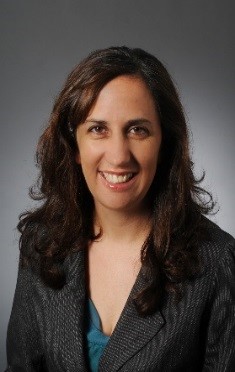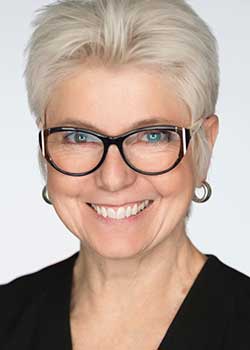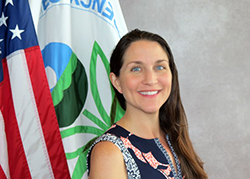CIU Presents...Practical Skills for Better Stories: A Narrative Framework for Community Involvement and Conflict Resolution at Superfund Sites
Sponsored by: US EPA Conflict Prevention and Resolution Center
This webinar will help participants discover what makes a story a narrative, and how conflict narratives function. Participants will also learn and practice basic skills to move from a conflict story to a collaborative story. The webinar will also explore CPRC's guide, A Narrative Framework for Community Involvement and Conflict Resolution at Superfund Sites, and consider how to use narrative tools in your community involvement work. Attendees will also engage with conflict scenarios to see a narrative conflict resolution approach in action. The webinar is designed for Community Involvement Coordinators, Remedial Project Managers, and On-Scene Coordinators.
Accessibility, Recording, and Content Disclaimer
Rehabilitation Act Notice for Reasonable Accommodation
It is EPA's policy to make reasonable accommodation to persons with disabilities wishing to participate in the agency's programs and activities, pursuant to the Rehabilitation Act of 1973, 29 U.S.C. 791. Any request for accommodation should be made to at or , preferably one week or more in advance of the webinar, so that EPA will have sufficient time to process the request. EPA would welcome specific recommendations from requestors specifying the nature or type of accommodation needed. Please note that CLU-IN provides both alternate phone call-in options and closed captioning for all webinars, and requests for these specific accommodations are not necessary.
Webinar Recording
By participating in this CLU-IN webinar, you automatically agree to authorize recording of audio and visual content presented during this live event and consent to subsequent use of this recording in the public domain by the U.S. Environmental Protection Agency. This recording may include questions, comments and poll responses provided by you during the live event in addition to your name, voice, image or likeness. This recording will be made available after the conclusion of the live event as part of the CLU-IN webinar archives, and will remain available indefinitely. If you do not wish to consent to the recording, please do not join the live event, and contact Jean Balent at 202-566-0832 or balent.jean@epa.gov to discuss your concerns.
Content Disclaimer
This webinar is intended solely to provide information to the public. The views and opinions expressed as part of this webinar do not necessarily state or reflect those of the U.S. Environmental Protection Agency. It is not intended, nor can it be relied upon, to create any rights enforceable by any party in litigation with the United States, or to endorse the use of products or services provided by specific vendors. With respect to this webinar, neither the United States Government nor any of their employees, makes any warranty, express or implied, including the warranties of merchantability and fitness for a particular purpose, or assumes any legal liability or responsibility for the accuracy, completeness, or usefulness of any information, apparatus, product, or process disclosed, or represents that its use would not infringe privately owned rights.
Presenters:
 Gina M. Cerasani, Ph.D., U.S. EPA, Conflict Prevention and Resolution Center (cerasani.gina@epa.gov or 202-564-0838)
Gina M. Cerasani, Ph.D., U.S. EPA, Conflict Prevention and Resolution Center (cerasani.gina@epa.gov or 202-564-0838)
Gina Cerasani is a conflict resolution specialist in the EPA's Conflict Prevention and Resolution Center (CPRC). She works with Superfund, offering convening, advising, coaching, and facilitation services, and she serves as CPRC's training coordinator. Prior to joining CPRC, Gina was a university lecturer and conflict resolution practitioner, specializing in community conflicts. She earned her doctorate in conflict analysis and resolution at George Mason University, and she has taught undergraduate and graduate courses in community conflict resolution and conflict resolution practice, including negotiation and mediation. She has over 10 years of experience facilitating dialogues and workshops to address environmental and other conflicts in communities.
 Sara Cobb, Ph.D., School for Conflict Analysis and Resolution (S-CAR) at George Mason University (scobb@gmu.edu or 703-993-4452)
Sara Cobb, Ph.D., School for Conflict Analysis and Resolution (S-CAR) at George Mason University (scobb@gmu.edu or 703-993-4452)
Dr. Sara Cobb has a Ph.D. in Communication (UMASS Amherst) and is the Drucie French Cumbie Chair at the School for Conflict Analysis and Resolution (S-CAR) at George Mason University, where she was, from 2001-2009, the dean/director. In her current role as faculty she teaches and conducts research on the relationship between narrative and conflict. She is also the Director of the Center for the Study of Narrative and Conflict Resolution at S-CAR, which provides a hub for scholarship on narrative approaches to conflict analysis and resolution. She is co-editor of the journal Narrative and Conflict: Explorations in Theory and Practice.
Dr. Cobb is widely published. Her book, Speaking of Violence: The Politics and Poetics of Narrative in Conflict Resolution (Oxford University Press) lays out the theoretical basis for a narrative lens on both conflict analysis and conflict resolution; this perspective presumes that conflict is a struggle over meaning, anchored in and by the stories we tell. Formerly Executive Director of the Program on Negotiation at Harvard Law School, she has been a leader in the fields of negotiation and conflict resolution studies, conducting narrative research on adaptive governance, serious games, resilient communities and sustainable systems. Currently, she is conducting research on conflict prevention in the Arctic.
Moderator:
 Jean Balent, U.S. EPA Technology Innovation and Field Services Division (balent.jean@epa.gov or 202-566-0832)
Jean Balent, U.S. EPA Technology Innovation and Field Services Division (balent.jean@epa.gov or 202-566-0832)
Ms Balent is on the staff of the EPA's Technology Innovation and Field Services Division where she has worked to collect and disseminate hazardous waste remediation and characterization information since 2003. Ms Balent manages the Clean Up Information Network website and actively supports online communication and collaboration resources available to EPA. She formerly worked with the US Army Corps of Engineers Environmental Engineering Division in the Buffalo District. Ms Balent was also a member of the SUNY-Buffalo Groundwater Research Group where she constructed and tested large scale models of groundwater flow. Ms Balent has also conducted research relating to the Great Lakes, environmental remediation, and brownfields re-development. She holds a Bachelor's degree in environmental engineering from SUNY-Buffalo and a Master's degree in Information Technology from AIU.
Webinar Slides and References:
Webinar Slides and References:
Additional Resources:
- These materials will be available by
Thank you for participating in our webinar. We would like to receive any feedback you might have that would make this service more valuable.
Help & FAQs
Adobe Connect Resources
This seminar will be delivered through Adobe® Connect™ with streaming audio delivered through your computer speakers or headphones. We strongly encourage you to test your computer or mobile app prior to attending this seminar using the links below. Technical support on the day of the seminar will be very limited and subject to significant delays.
- Adobe® Connect™ Meeting Connection Diagnostic & Troubleshooting Tips
- Adobe® Connect™ Mobile Apps
- Adobe® Connect™ Visual Quick Start Guide (754KB/2pp/PDF)
Rehabilitation Act Notice for Reasonable Accommodation
It is EPA's policy to make reasonable accommodation to persons with disabilities wishing to participate in the agency's programs and activities, pursuant to the Rehabilitation Act of 1973, 29 U.S.C. 791. Any request for accommodation should be made to at or , preferably one week or more in advance of the seminar, so that EPA will have sufficient time to process the request. EPA would welcome specific recommendations from requestors specifying the nature or type of accommodation needed, such as closed captioning.
with any additional questions
If you have a suggested topic or idea for a future CLU-IN internet seminar, please contact:
Technology Integration and Information Branch
PH: 202-566-0832 | Email: balent.jean@epa.gov
Technology Integration and Information Branch
PH: 202-566-0875 | Email: adam.michael@epa.gov





